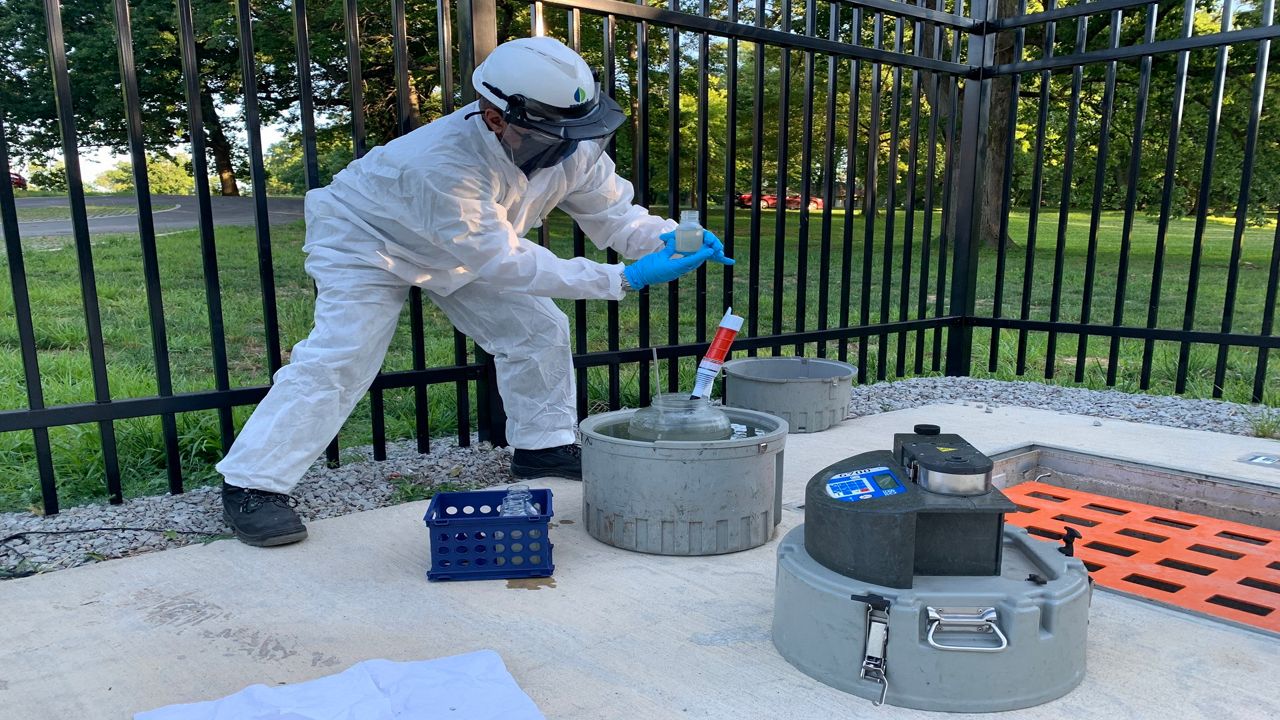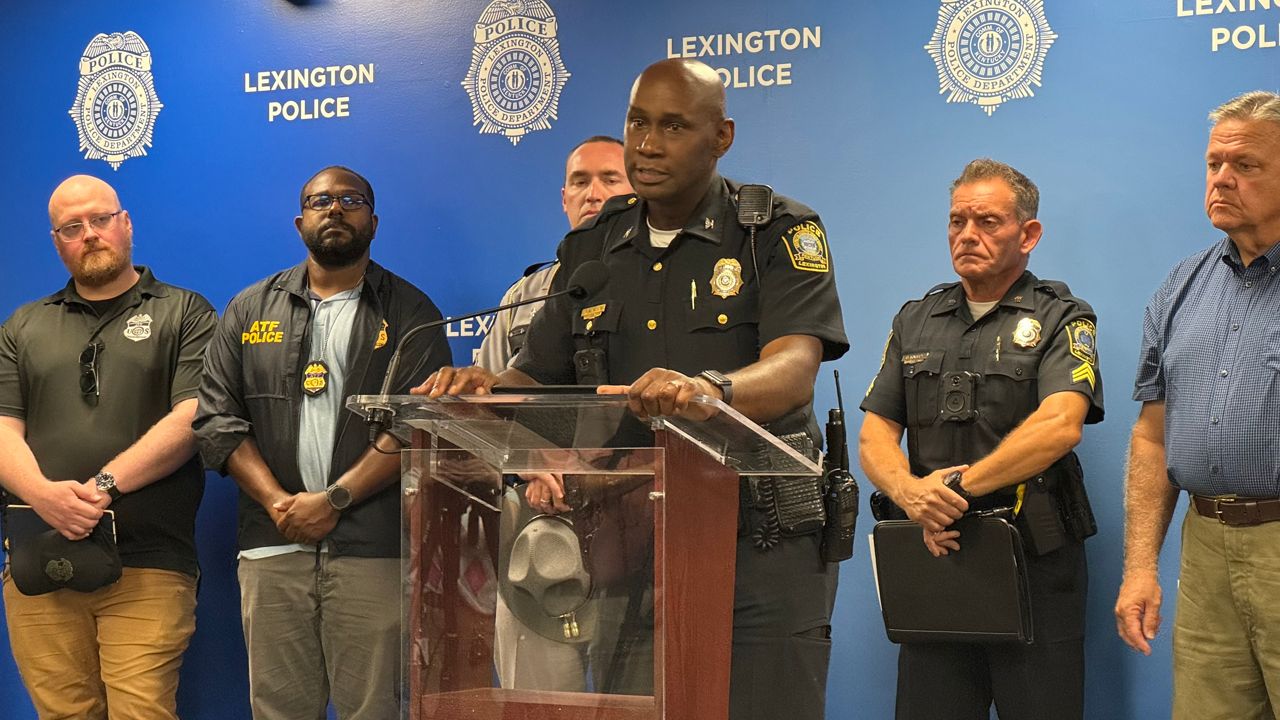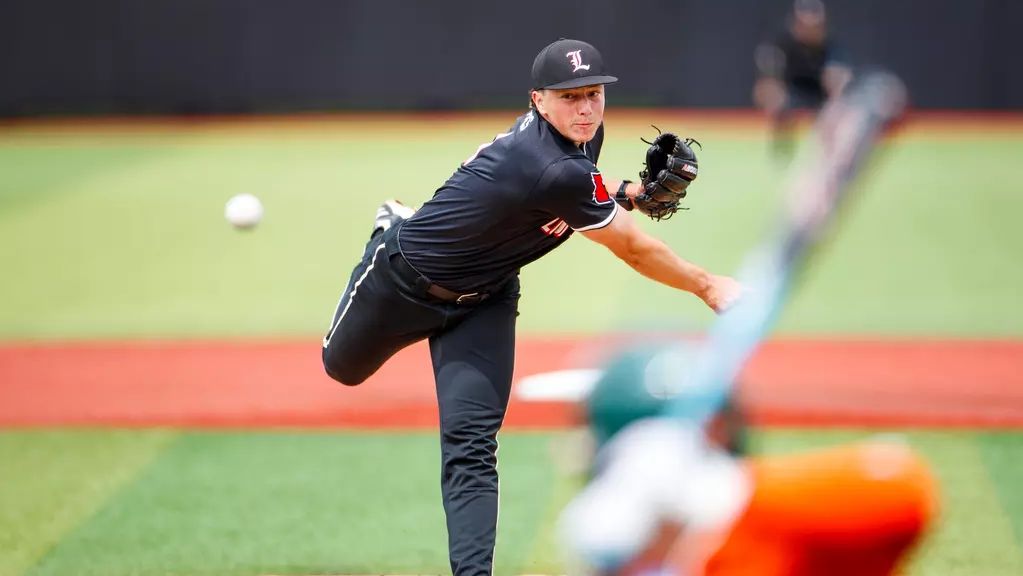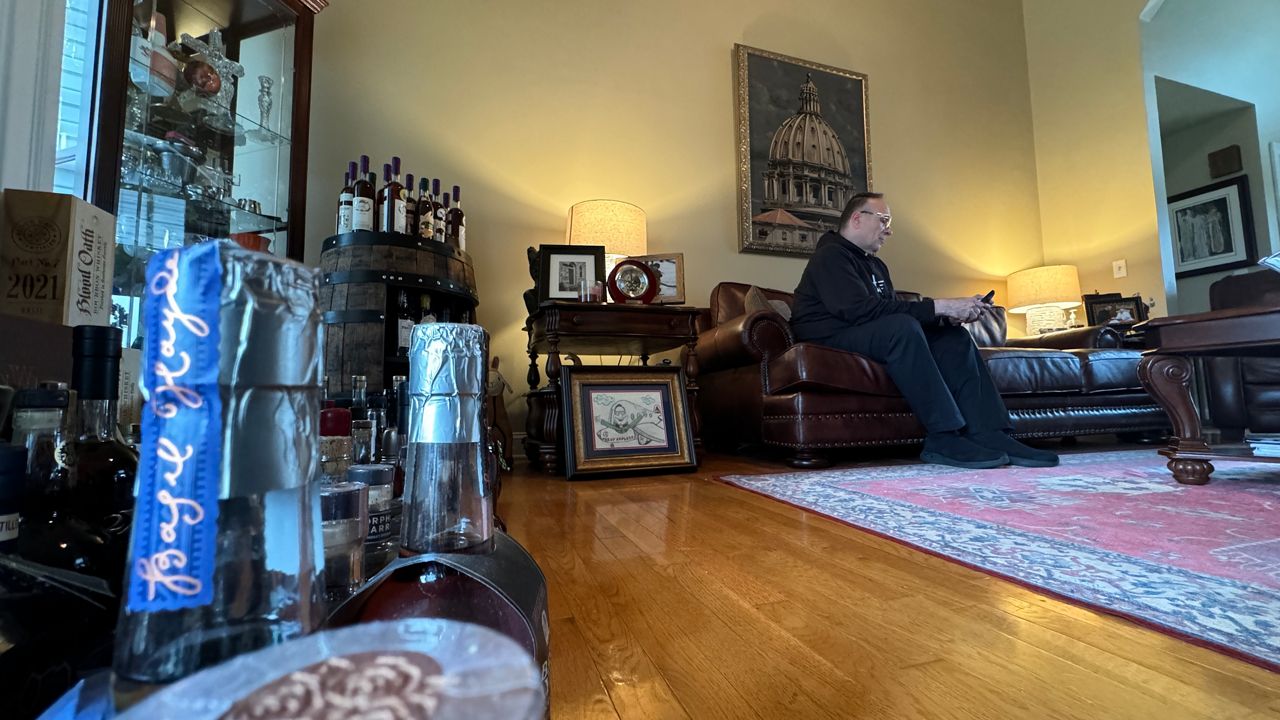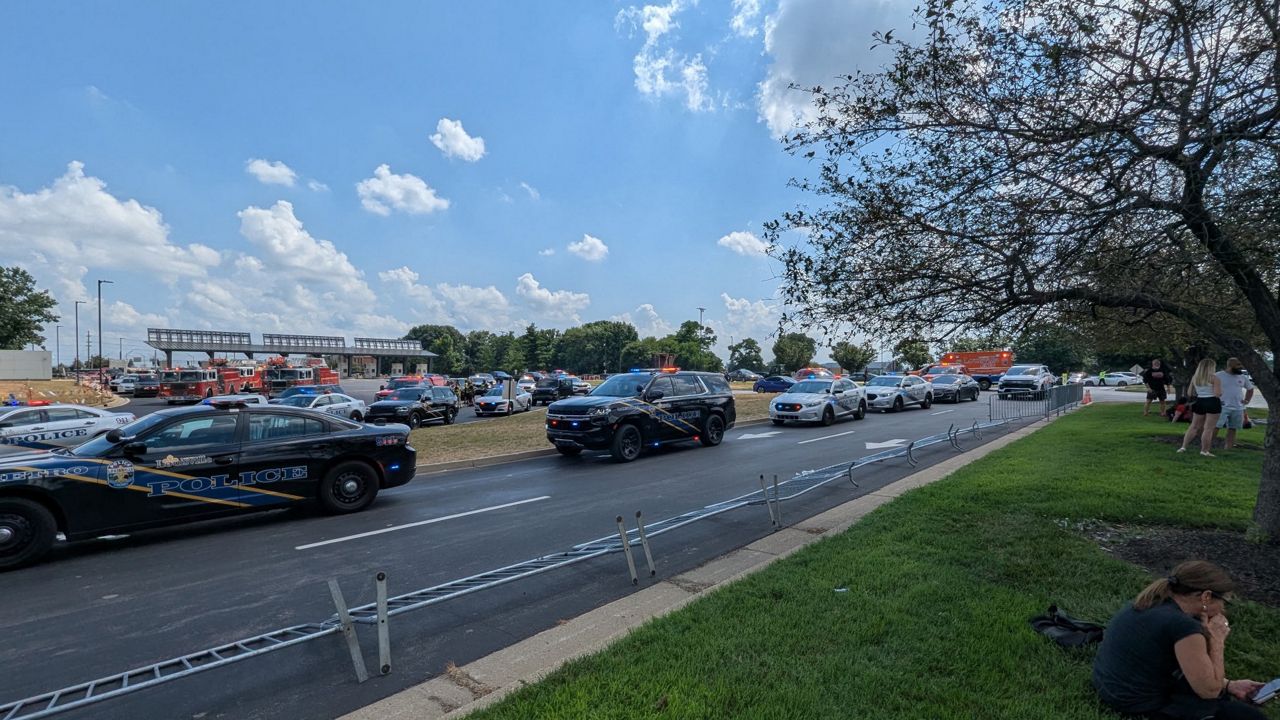LOUISVILLE, Ky. — Researchers at the University of Louisville are ramping up wastewater testing in an effort to identify the omicron COVID-19 variant as quickly as possible, according to Ted Smith, director of UofL’s Center for Healthy Air, Water and Soil.
“We stepped up to do daily sampling at Morris Forman Water Quality Treatment Center, which is our largest wastewater treatment plant in Louisville,” Smith told Spectrum News 1. “That captures about 340,000 households.”
Smith said identifying the presence of omicron as soon as it arrives in Louisville can help the city, county and state assess risk related to the mysterious, but potentially more dangerous, variant.
“That's really the point, to quickly discern what the risk is and then communicate that risk to the public,” Smith said.
For 16 months, Smith and his team have monitored wastewater every week, sometimes twice a week, at 17 different locations across the city. The researchers collect samples at manholes and treatment plants and check for the presence of the coronavirus, which is shed through feces.
“It has given us the ability to have another gauge of infection trends — where there's infection, where infection rates are the highest, where they’re declining, where they’re increasing, are they spreading,” he explained.
Earlier in 2021, after nearly a year of testing for the presence of the virus, the researchers began performing genomic sequencing on the bits of virus pulled from the wastewater. That allowed them to follow the spread of the delta variant through the community over the course of several weeks. That variant, blamed for the summer surge in COVID-19 cases, now makes up 100% of the cases in Louisville.
Though omicron has not been detected in Louisville’s wastewater, Smith and other experts say it’s a matter of days until it happens.
“We are just waiting for confirmation that omicron is here,” said SarahBeth Hartlage, interim Medical Director at Louisville’s Health Department. “We’re certain it’s coming.”
The variant was first identified in late November in South Africa. The World Health Organization quickly declared it a “variant of concern.” So far, omicron has turned up in at least 19 states, including one that borders Kentucky, Missouri.
“Right now, there’s still a lot that we don't know about omicron,” UofL Health infectious disease specialist Mark Burns said. “There have been some papers on preprint servers that indicate it might be more transmissible than the delta variant. There's also been some reports that it may be a little more invasive to the vaccines, but these things have not been proven just yet.”
As health experts await omicron’s arrival in Louisville, COVID-19 infections are on the rise. Last week, the city reported 2,211 new COVID cases, nearly double the week prior. Hospitalizations are also on the rise, with 184 COVID patients as of Wednesday. That’s the most since the first week of October.
As infections spread, testing wastewater can provide a wider snapshot of what’s happening. The Centers for Disease Control and Prevention explains that virus can be “shed in the feces of individuals with symptomatic or asymptomatic infection; therefore, wastewater surveillance can capture data on both types of infection.”
It’s also the most effective way to assess where a community stands with infections.
“We're not asking everybody to go out and get tested to figure out how much virus there is in a community,” Smith explained. “It's a completely passive, very cost-effective way to have a data point that we can look at and use to make decisions.”
